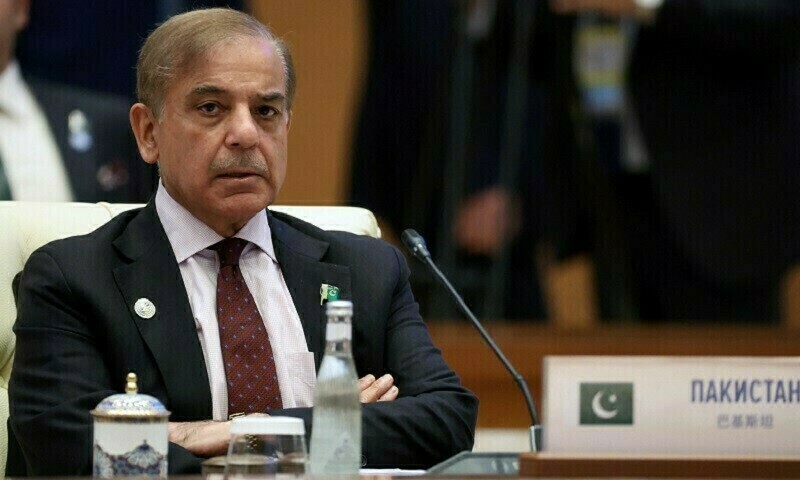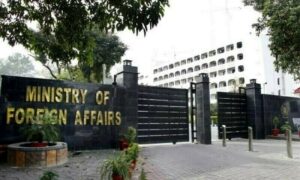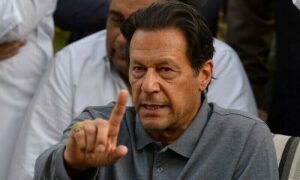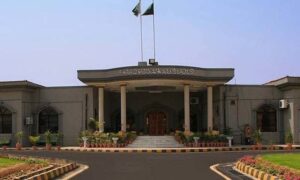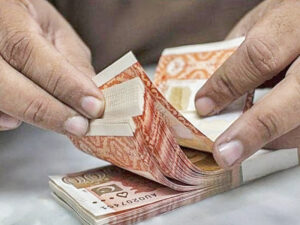As the nation marks five years since India revoked the special autonomy of occupied Kashmir, Prime Minister Shehbaz Sharif called on New Delhi to move from “dispute denial to dispute resolution” for lasting peace in South Asia.
Pakistan is observing Youm-i-Istehsal (Exploitation Day) today to mark the fifth anniversary of India revoking Kashmir’s special autonomy and to show solidarity with Kashmiris.
On August 5, 2019, India’s Narendra Modi-led government stripped the Muslim-majority territory of its special status by repealing Article 370 of the constitution, splitting the former state into two territories directly ruled by New Delhi.
The move allowed people from the rest of India to acquire property in India-occupied Kashmir (IoK) and settle there permanently. Kashmiris, as well as critics of India’s Hindu nationalist-led government, saw the move as an attempt to dilute the demographics of Muslim-majority Kashmir with Hindu settlers.
In response to the controversial move, the Government of Pakistan designated August 5 as Youm-i-Istehsal, starting in 2020. This day is now observed annually in Pakistan as a reaction to the status change.
In December last year, India’s Supreme Court unanimously upheld the 2019 order and ruled that IoK’s special status was a temporary provision.
PM Shehbaz said today that “India must move from dispute denial to dispute resolution” in the interest of lasting peace and security in South Asia, state-run Radio Pakistan reported.
He vowed that Pakistan would continue to extend its strong moral, political and diplomatic support to the Kashmiri people till the realisation of their inalienable right to self-determination.
Shehbaz also posted on X, reiterating his “unwavering solidarity” with Kashmiris and highlighting that their right to self-determination had been mandated by United Nations Security Council (UNSC) resolutions.
The premier called on the international community to “make efforts to ensure justice and peace in the region”.
In his statement, President Asif Ali Zardari had said India’s actions in occupied Kashmir since August 5, 2019 demonstrated a complete disregard for international laws and the aspirations of Kashmiris.
Country marks Youm-i-Istehsal
A one-minute silence was observed at 9am and the national anthems of Pakistan and Azad Jammu and Kashmir (AJK) were also played, Radio Pakistan reported.
It further said that protest gatherings and rallies have been called in AJK’s capital Muzaffarabad by the Kashmir Liberation Commission, Hurriyat organisations, trade unions, political parties, the journalist community and civil society.
Banners, placards and posters have been displayed across AJK while documentaries would be screened in major cities of the region.
In the morning, a rally was held at Constitution Avenue in Islamabad to protest against the Indian government’s revocation of IoK’s special status, Radio Pakistan reported.
Deputy PM and Foreign Minister Ishaq Dar and Amir Muqam, the minister for Kashmir Affairs and Gilgit Baltistan, among others, addressed the rally.
Dar said that if India considered itself a champion of democracy, then it should let foreign observers access IoK to “assess the atrocities being perpetrated” by the Indian forces, Radio Pakistan stated.
It quoted the deputy PM as saying that India could not suppress the freedom movement of Kashmiris and should announce holding a plebiscite.
A special session of the Azad Jammu and Kashmir Legislative Assembly has also been summoned to mark the occasion, Radio Pakistan reported.
Last week, PTV News had reported that a “joint main event of Pakistani and Kashmiri leadership” had been approved for today while PM Shehbaz would visit Muzaffarabad to express solidarity with Kashmiris.
Campaign to ‘Indianise Kashmir’: Deputy PM Dar
In his statement, Deputy PM Dar said that an “intensified campaign to ‘Indianise’ Kashmir, and transform Kashmiris into a disempowered community in their own land, has been in full swing” since Aug 5, 2019.
“The Jammu and Kashmir dispute is one of the oldest unresolved international disputes. It has been on the agenda of the UNSC since 1948,” Dar said in his statement, emphasising that they had not been implemented even more than seven decades later.
“In the last 77 years, India has tried different methods to perpetuate its illegal rule on Jammu and Kashmir,” the deputy premier said.
“The Indian authorities have taken a number of steps, aimed at altering the demographic structure and political landscape of the Indian Illegally Occupied Jammu and Kashmir (IIOJK).
“These measures include gerrymandering of the electoral constituencies, allowing [the] addition of non-Kashmiris to electoral rolls, issuance of domicile certificates to outsiders, and introduction of new laws on ownership of land and property,” Dar pointed out.
The foreign minister criticised Indian authorities for creating an “environment of fear and intimidation” in the region, noting that the number of political prisoners was in the thousands.
Dar said the revocation of India-held Kashmir’s special status and India’s subsequent steps there were in breach of the UN Charter, UNSC resolutions and the Fourth Geneva Convention as under international law, Jammu and Kashmir was an internationally-recognised disputed territory and therefore, “any process subservient to the Indian constitution” could not be invoked to determine the territory’s final status.
The Deputy PM also issued a video statement earlier today, reiterating that Pakistan would continue extending its political, diplomatic and moral support to the Kashmiri people till the dispute was solved as per UNSC resolutions.
He asserted that Pakistan had been a fundamental party in the dispute and hence, India could not impose any “unilateral decision” against the will of Pakistan and Kashmiris.
Indian forces’ actions ‘deeply reprehensible’: ISPR
Separately, Chairman Joint Chiefs of Staff Committee (CJCSC) General Sahir Shamshad Mirza, the services chiefs and the Pakistan Armed Forces also reaffirmed their “steadfast solidarity with the courageous and resilient people” of IoK, the military’s media wing said.
“We unequivocally support their legitimate and protracted struggle for the inalienable right to self-determination,” the Inter Service Public Relations (ISPR) said in a statement.
“The Indian Security Forces’ egregious violations of international law, including the ongoing draconian military lockdown, unlawful attempts to alter the demographic structure of the occupied territory, and persistent human rights abuses, are deeply reprehensible,” it asserted.
“These unjust actions, coupled with the Indian government’s belligerent rhetoric and hostile posturing, perpetuate the security and humanitarian crises in IIOJ&K, posing a constant threat to regional stability,” the ISPR added.
It further said it was “axiomatic that lasting peace and stability in the region hinge on the resolution of the long-standing Kashmir dispute” as per UN resolutions and the aspirations of the Kashmiri people.
The PAF paid tribute to the “martyrs of IIOJK for their extraordinary sacrifices” and reaffirmed its commitment to supporting Kashmiris in their “righteous struggle against oppression and tyranny, on political, moral, and humanitarian grounds”, the statement added.
India ‘disregarded’ world laws: President Zardari
Meanwhile, President Asif Ali Zardari said India’s actions in occupied Kashmir since August 5, 2019, demonstrated a complete disregard for international laws, the aspirations of the Kashmiris and the United Nations Security Council resolutions.
In his message on Youm-i-Istehsal, the president criticised New Delhi for its “unilateral actions”.
“Today marks the completion of five years of India’s latest campaign to consolidate its illegal occupation of Jammu and Kashmir,” Zardari said.
India’s “unilateral and unlawful steps” five years ago undermined the region’s “internationally recognised disputed status”, he asserted.
He pointed out that the continued presence of hundreds of thousands of Indian troops has turned the region into “one of the most heavily militarised zones in the world”.
Zardari vowed Pakistan will continue to extend moral, diplomatic and political support to the just struggle of Kashmiris and the realisation of their right to self-determination.
Echoing the president’s statement, Senate Chairman Syed Yousaf Raza Gilani said Aug 5, 2019, would be remembered as a “dark day in history”.
National Assembly Speaker Ayaz Sadiq stressed that the resolution of the Kashmir dispute was “essential for achieving lasting peace in the region”.
Kashmir affairs minister Amir Muqam highlighted that the Kashmiri people had rendered countless sacrifices for their right to self-determination.

